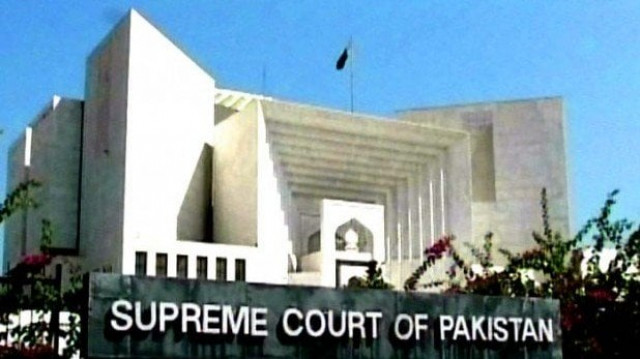CoD has no legal effect: SC
The Charter of Democracy was an agreement between two major political parties and has no legally binding effect.

Counsel for petitioner Supreme Court Bar Association Hamid Khan continued his arguments before the bench headed by Chief Justice Iftikhar Chaudhry. The crux of his argument was that the method of appointing judges outlined in the newly amended article 175-A was derived from the Charter of Democracy signed by PPP head Benazir Bhutto and PML-N chief Nawaz Sharif. Since the CoD has no legal standing, argued Khan, the article should be declared unconstitutional.
At Justice Asif Saeed Khosa’s contention that the resolution to constitute the judicial commission had been approved by the Pakistan Bar Council, Khan told the court that the PBC had not approved of the inclusion of the law minister and the attorney general in the commission.
Khan said article 175-A ran counter to the concepts of constitutional mandate, the freedom of the judiciary and the separation of the judiciary from the executive. The lawyer also took exception to the fact that not only has the article eliminated the consultative process in the appointment of judges, it does not provide a role for the prime minister, who is the chief executive of the country in a parliamentary democracy. “The Parliament does not appoint anyone directly; the prime minister decides with his cabinet because he is so entrusted by the Parliament,” said Khan.
On being asked whether his reservations had to do with the limited powers of the president and prime minister, Khan said he just wanted the parliamentary system to run in the right direction.
At this, Justice Saqib Nisar asked Khan whether the binding suggestion of the chief justice in the previous system did not similarly undermine the powers of the prime minister in appointing judges. “Previously, the prime minister could return the suggestions of the chief justice with solid reasoning but in the present system, the role of the PM has been abolished and the president has been reduced to a rubber stamp,” argued Khan.
Khan also highlighted the fact that the process of appointment can be delayed because the procedure described in article 175-A envisages the creation of a parliamentary committee. Given a multi-party system and the fact that the present government itself is a coalition of six parties, Khan said, choosing members of the parliamentary committee would be inordinately difficult. And, he said, generating consensus among political parties of different hues would be even more difficult.
At this, Justice Anwar Zaheer Jamali said, “Article 175-A has clarified the selection of the members of the judicial commission but the process of selection of members of the parliamentary committee has not been made clear… Aren’t these double standards?”
Meanwhile, Justice Khalilur Rehman Ramday reflected on the fact that in the past, even law officers – and not just judges – were appointed in consultation with the Chief Justice of Pakistan.
The chief justice adjourned the hearing till today (Tuesday) and Khan will resume his arguments then.
Published in The Express Tribune, July 6th, 2010.



















COMMENTS
Comments are moderated and generally will be posted if they are on-topic and not abusive.
For more information, please see our Comments FAQ